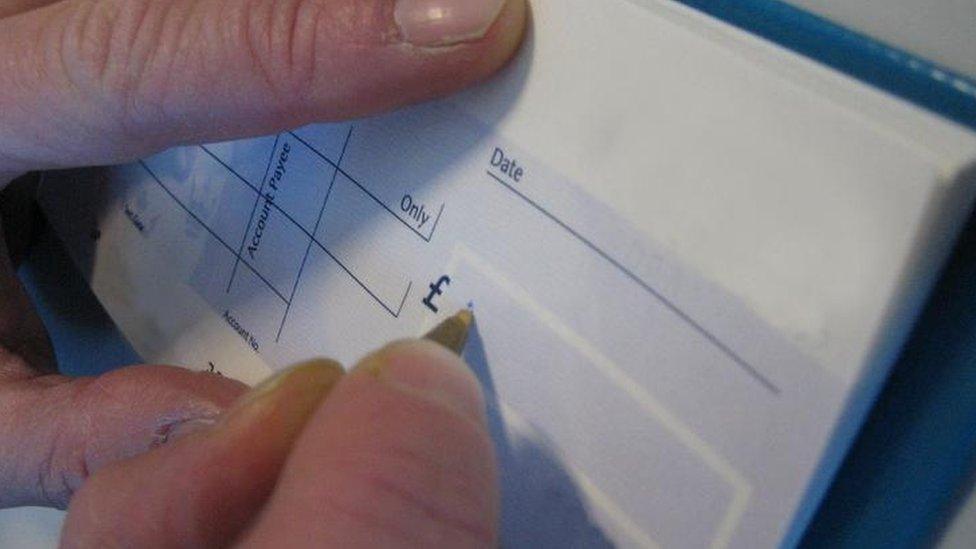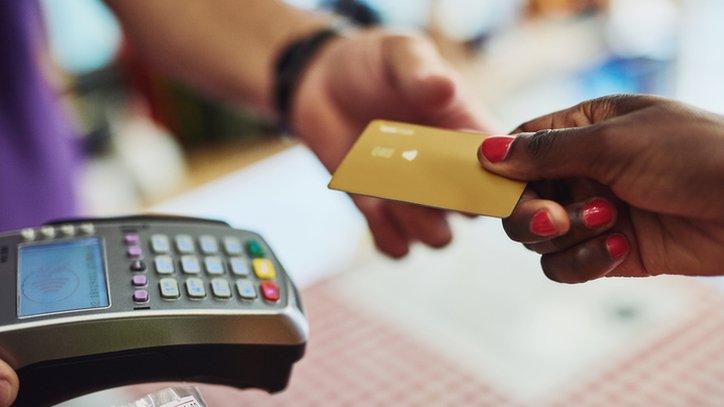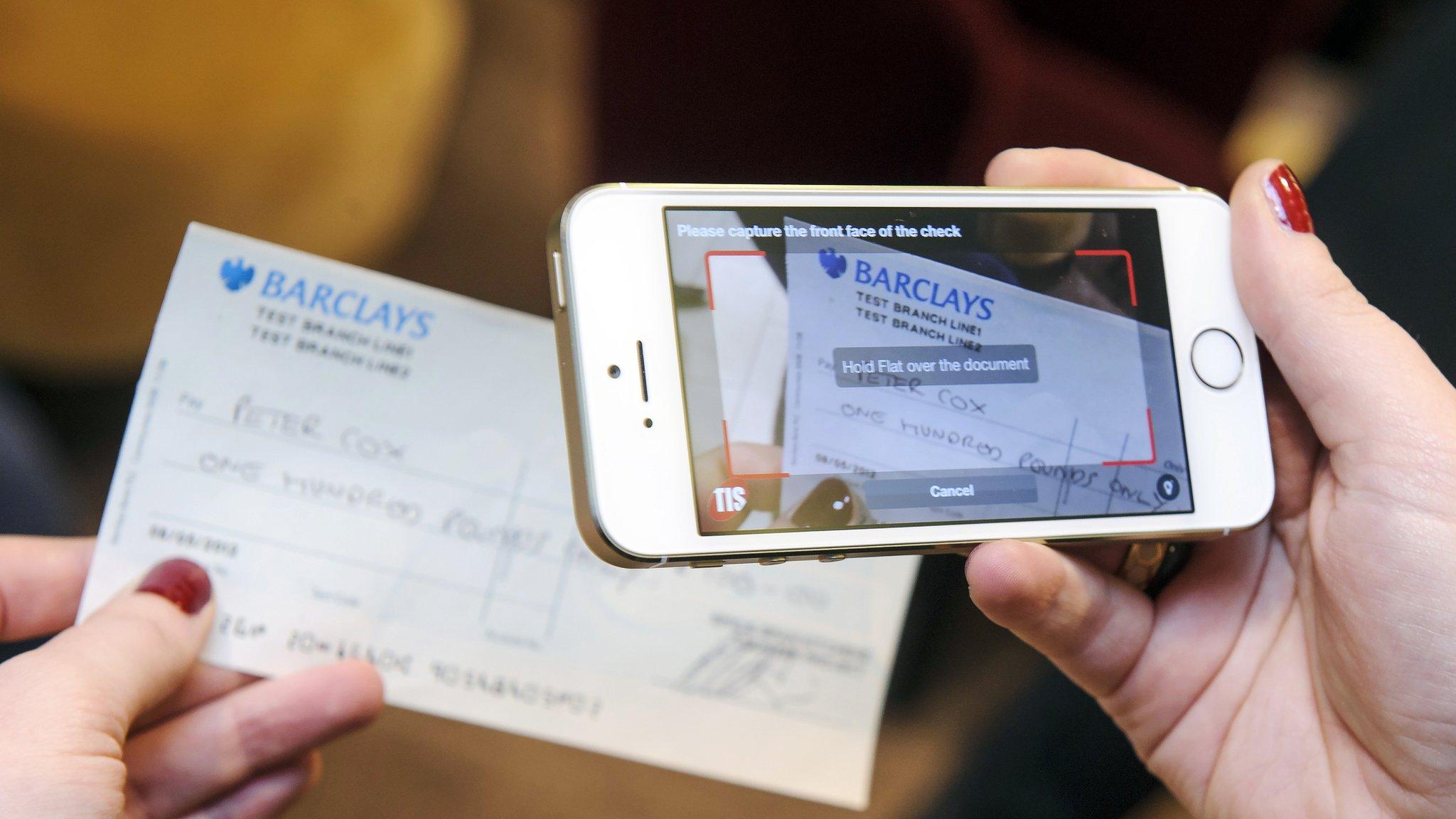Would it matter if chequebooks ran out?
- Published

Debate over the future of cheques has been reignited amid a pay dispute at a company that has been printing cheques for more than 100 years.
Some 79 members of the Unite union at Communisis in Crewe said their industrial action could have affected supply to High Street banks.
Strikes scheduled this week have been called off amid the expectation of a fresh offer from the company.
But the dispute has prompted discussion over our current use of cheques.
Cheque out?
The use of cheques in the UK peaked in 1990, when there were more than four billion transactions a year.
Their popularity has been falling significantly since. A total of 405 million cheques were processed in the UK last year.
Their future was in doubt a few years ago when the payments industry discussed phasing them out by 2018, but it was forced into a change of heart by MPs who said no viable alternatives for the vulnerable and elderly were in place.
The response from some at the news that printed cheques and chequebooks could be delayed by the dispute among specialists in Crewe, was to question when they last wrote a cheque.
Some parents still do so for school trips, some small traders - such as window cleaners - may still ask for them, and, of course, the giant cheque still features in pictures of lottery winners and big charity donations.
Tax refunds from HM Revenue and Customs used to often come by cheque, but nowadays the tax authority encourages customers to get money paid directly into their bank accounts.
However, it still issued nearly six million cheques in the last financial year.
More controversially, compensation payments by cheque from Ryanair with no signature were revealed in a recent BBC investigation.

Cheque's mates
Here are some of your views sent to the BBC Business Live page on the use of cheques:
Mark Greenman says: "I am the director of Wales International Freight and we still pay all our suppliers by cheque.
"The reason for this is I have total control of the payments and avoid any computer error or more importantly fraudulent activity."
Financial adviser James Wyman says: "Many of my clients will hand over a cheque to make contributions into pensions, investment accounts, or ISAs as it can be done in a single transaction, whereas daily limits on payments via internet banking mean they have to log in and make a series of payments.
"You are able to go into the bank and get a large payment made in a single transaction. However, why would you go out of your way to enter a branch if you were able to write out a cheque?"
However, Michael Ryder says: "Last summer I took over the running of a small charity that used cheques for all of its transactions. About 300 cheques a year, all of them dual-authorised, had to be posted around the country to collect signatures before being dispatched to the payee.
"Since November last year we have written no cheques, payments are quicker, accountability is clearer, risk of misuse reduced and charges are lower."

However, there is still innovation in the centuries-old method of payment.
A number of banks have trialled systems that allow people to pay in a cheque by taking a photo on their smartphone and submitting it on a secure smartphone app.
A new UK-wide system, allowing banks to clear cheques from customers of different banks, is set to be in place by the end of the year.
- Published18 June 2018

- Published5 December 2014
